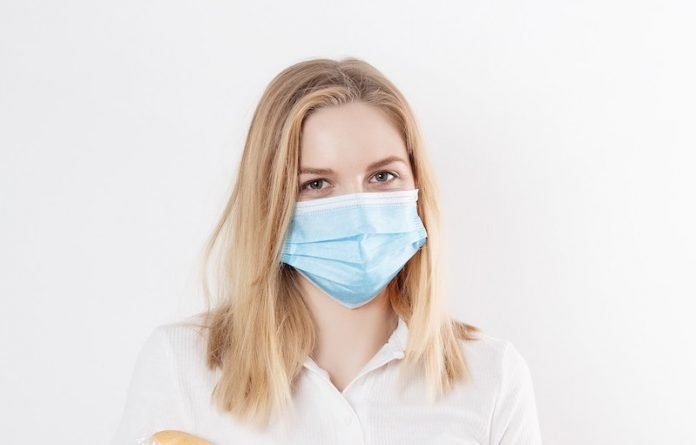
Scientists from the University of Kentucky showed that a newly developed medical face mask membrane can capture and deactivate the SARS-CoV-2 spike protein on contact.
SARS-CoV-2 is covered in spike proteins, which allow the virus to enter host cells once in the body. The team developed a membrane that includes proteolytic enzymes that attach to the protein spikes and deactivates them.
This new material can filter out the virus like the N95 mask does, but also includes antiviral enzymes that completely deactivate it.
This innovation is another layer of protection against SARS-CoV-2 that can help prevent the virus from spreading
In the study, the researchers developed the membrane, which was fabricated through an existing collaboration with a large-scale membrane manufacturer.
It was then tested using SARS-CoV-2 spike proteins that were immobilized on synthetic particles.
Not only could the material filter out coronavirus-sized aerosols, but it was also able to destroy the spike proteins within 30 seconds of contact.
The team found that the membrane provided a protection factor above the Occupational Safety and Health Administration’s standard for N95 masks, meaning that it could filter at least 95% of airborne particles.
They say these membranes have been proven to be a promising system of advancement toward the new generation of respiratory face masks and enclosed-environment filters that can significantly reduce coronavirus transmission by virus protein deactivation and enhanced aerosol particle capture.
If you care about COVID, please read studies about people who have the highest COVID-19 risk, and hospitalization, and this new COVID-19 drug could effectively treat severe disease.
For more information about COVID, please see recent studies about the key to stopping indoor COVID virus spread, and results showing herb rosemary could help fight COVID-19, Alzheimer’s disease.
The research was published in Communications Materials and conducted by Professor Dibakar Bhattacharyya et al.
Copyright © 2022 Knowridge Science Report. All rights reserved.



